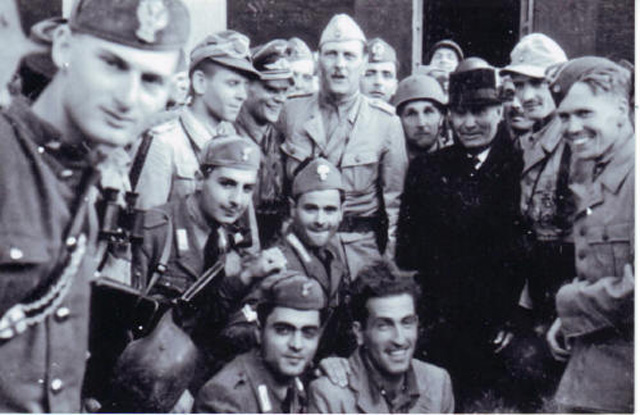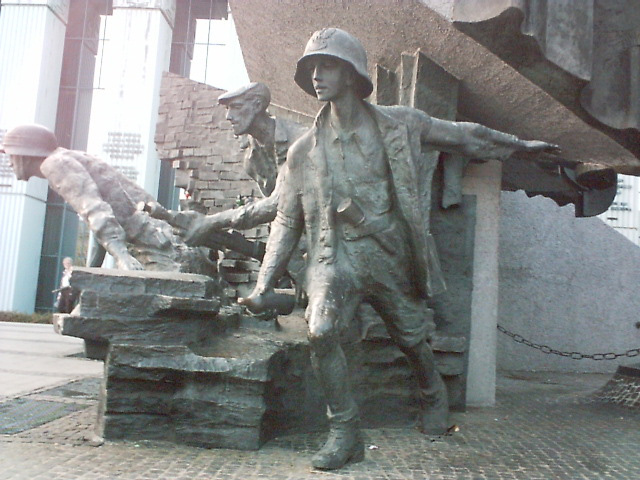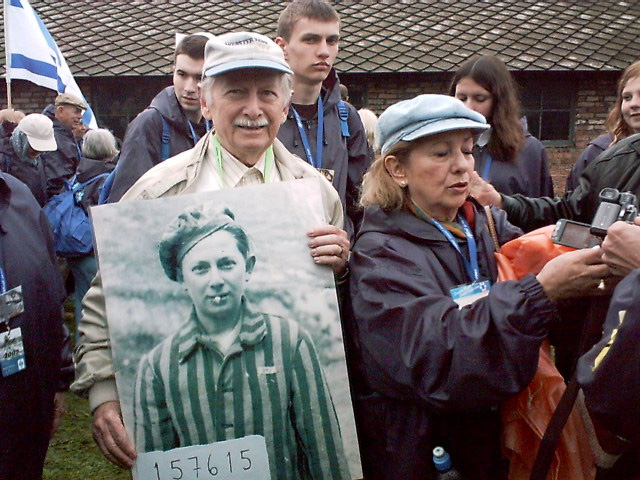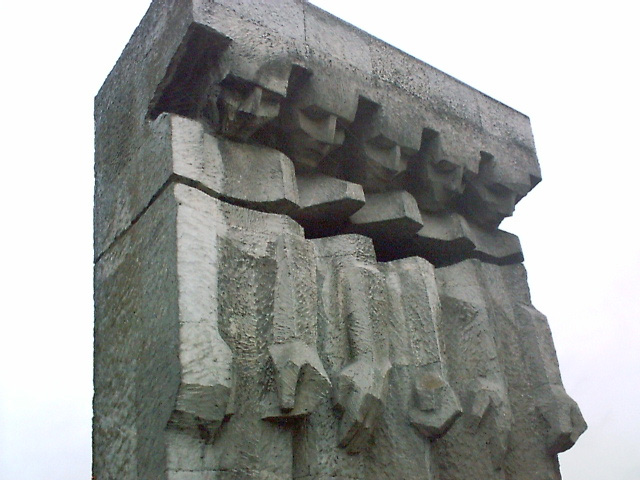
The e-book "Boy Parachutist 1942-45" is the story of Harry Henkel, who as a 16 year old trained as a Whermach Parachutist and saw action in North Africa, Catania in Sicily, Monte Casino in Italy and finally on the Russian Front and then escaped as the war was coming to its final conclusion over the Elbe River to the Americans.
As the author and publisher I sat with Harry Henkel over several months recording his story which culminated in him serving the Americans in post war Germany as a translator (his mother was English) and migrating to Australia n 1952.
In this insightful chapter of Harry Henkel's life he details the escape over the Elbe and into American hands. The entire e-book can be sought at: https://writerspen.com.au/bushorchestra/HarryHenkel.htm
To the Americans
It must have been quite a sight to the Americans watching at the break of dawn as this mixed bag of human life made their way across the Elbe to their side and straggled like half drowned cats from the shore line. The Americans met the women and children at the shore line and assisted them out of the water to dry ground. The Americans filmed everything with motion picture cameras as each of us slowly made our way from the water's edge up to the bank totally exhausted.
The Elbe was one kilometre across and this illustrates both the determination we had and the extent of our exhaustion upon reaching the other side. In my estimation it took not quite an hour to reach the American side of the Elbe River. It must also be remembered that we were all very fit and for most of us who could swim, we were good swimmers.
Another aspect of that memorable swim was part way across the Elbe, as difficult and as awkward as it was, we ditched our uniforms. For the boys it was case of being easier to swim without their restrictive uniforms. For me it was much simpler. If I'd come out of the river in my paratrooper uniform I would have been sent to a POW camp. That was the last thing I had in mind. The sergeant and I had made an agreement with the Major that he would affirm that we were part of his outfit.
The Americans, having gathered us together, asked who was in charge and the Major stepped forward in his underwear. They were astonished that a man of his age was in charge of all these boys. They sought an explanation and the Major explained what outfit they were and their tasks in fixing roads and the like. When the Americans heard the words, labour outfit, they immediately understood because they were aware of this role within their own military. I overheard an American captain saying to his commanding officer, "What are we going to do with these lads, they are only kids."
The POW stockades were chock-a-block full of regular soldiers and there was no provision for all these young boys. The American officer in charge who was chewing on a cigar said out of the corner of his mouth, 'Send them home to their goddamn mothers".


Dirty Jungle Greens
We were given some dirty jungle greens from an American quartermaster's truck as the Americans did not believe in washing on the line. Rather they exchanged their uniforms for clean ones on a weekly basis. There were two quartermaster trucks full of dirty uniforms and these clothes were given to us. As we were in our underwear these American uniforms were greatly appreciated even though they smelt.
The quartermaster sergeant and his offsider came to us with a pair of scissors and cut each and every trouser leg at the knee. This was to signify that we were only kids and protected us from any untoward or mistaken situation. These were still perilous times even on the American side of the Elbe. Now was not the time to be killed in any mistaken encounter. The Americans did all they could to ensure this was the situation.
We were each given one bar of K ration chocolate for our lunch. We were then assembled and the Americans dismissed us and instructed us to head for our homes. We were each issued with a pass which would allow us to proceed unhindered to our homes.
The family groups that were with us were directed to refugee camps and their situations were handled from there. They all eventually found their way to their homes. The Major and the older offices were the unluckiest of us all as they were all taken to POW camps. There seemed to be no justice for them in this whole drama. At least they got out of the war alive and would eventually return to civilian life.
For me, that was the end of World Wear II
The pass we were each given had the following information on US Army letterhead. Each one was handwritten for each of us one hundred and fifty boys, so this must have been quite a logistical task for the clerical staff for the 2nd Army They were all completed by lunch time.
It read that the holder of this pass (without any of our names) surrendered to the American 2nd Army, was duly interrogated and found to be of no special interest and permitted to return to his home.
It was stamped and signed by the American Colonel.
Not to lose our Pass
We were told not to lose this piece under any circumstances otherwise we could still find ourselves in a lot of trouble. It was one hundred kilometres from the Elbe River to Halle where my mother was. After lunch when we were told to head off. We left the operational area as quickly as possible and we split up, everyone going his own way saying his goodbyes as we headed in our own direction. Not one of us had any money and how these other one hundred and fifty boys found their own way home is unknown to me.
We were required to use our initiative and for me, being bi-lingual I begged some lifts heading in the direction of Halle wherever I could. These were American trucks and their drivers were all too ready to enjoy a bit of company and a chat. They were all curious as to how I had American jungle greens on. I gave them the story about swimming the Elbe. Most of these American drivers were Negro soldiers and this fascinated me. They had a sense of the underdog and this assisted me getting lifts. Some even shared their rations with me. All along the way I sought food from farm houses. The farmers and their wives were very generous and this helped sustain me.
On the way I showed my pass to many military police road blocks and was given a clear way on each occasion. That one hundred kilometre journey took me two full days to reach Halle.
It was late on the afternoon of the second day that I made my way into Halle and walked the final section to my mother's house. I knocked and my mum opened the door and she was over the moon to see me and fell upon my neck with a shriek. From the time I was arrested at her home to this point she had not heard anything, whether I was alive or dead. I was still only nineteen years of age.
I'd experienced and seen the most horrific actions in my short life. Parachuting behind enemy lines in North Africa, parachuting into Catania in what the Americans themselves described as fanaticism, I'd been on the Gustav Line at Monte Cassino and then found myself on the Eastern Front in the final stages of the Second World War.
Three year period 1942-45
In this three year period from 1942-45 I'd been wounded twice and on each occasion had been medically evacuated before my unit saw defeat. At each battle I was part of a victory.
I learnt very quickly that glorious death for the Fatherland was a myth and had no meaning whatever.
Postscript: Harry Henkel became a Christian in Australia and found real meaning in his life through Jesus Christ. He is now in glory.

 Dr Mark Tronson is a Baptist minister (retired) who served as the Australian cricket team chaplain for 17 years (2000 ret) and established Life After Cricket in 2001. He was recognised by the Olympic Ministry Medal in 2009 presented by Carl Lewis Olympian of the Century. He mentors young writers and has written 24 books, and enjoys writing. He is married to Delma, with four adult children and grand-children. Dr Tronson writes a daily article for Christian Today Australia (since 2008) and in November 2016 established Christian Today New Zealand.
Dr Mark Tronson is a Baptist minister (retired) who served as the Australian cricket team chaplain for 17 years (2000 ret) and established Life After Cricket in 2001. He was recognised by the Olympic Ministry Medal in 2009 presented by Carl Lewis Olympian of the Century. He mentors young writers and has written 24 books, and enjoys writing. He is married to Delma, with four adult children and grand-children. Dr Tronson writes a daily article for Christian Today Australia (since 2008) and in November 2016 established Christian Today New Zealand.
Mark Tronson's archive of articles can be viewed at http://www.pressserviceinternational.org/mark-tronson.html

Dr Mark Tronson - a 4 min video
Chairman – Well-Being Australia
Baptist Minister 45 years
- 1984 - Australian cricket team chaplain 17 years (Ret)
- 2001 - Life After Cricket (18 years Ret)
- 2009 - Olympic Ministry Medal – presented by Carl Lewis
- 2019 - The Gutenberg - (ARPA Christian Media premier award)
Gutenberg video - 2min 14sec
Married to Delma for 45 years with 4 children and 6 grand children